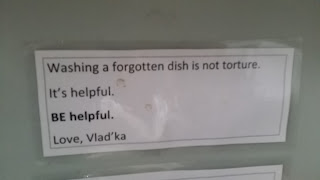Name: Gerardo Robledillo
Hometown: Madrid, Spain
Occupation: Web Developer, Website Owner of International Schools Database and Expatistan.com
Gerardo is the owner and founder of International Schools Database, a website that helps relocating families find the right English-language schools for their children, and Expatistan.com, a crowdsourced price comparison website that provides current information about the cost of living to both companies and the employees that they relocate.
“Expatistan is a cost of living calculator that allows you to compare the cost of living between cities around the world. The comparisons allow you to get a better understanding of the cost of living of any city before you move there” (Expatistan.com).
This database is compiled from information received from it’s users. The more data is entered, the more accurate and reliable the information is. Gerardo’s website is a unique and useful tool that arguably outperforms the best cost-of-living indexes otherwise available.

Why did you choose to make your own website?
“At one point, I was moving a lot in a very short period of time, and I was working for other companies. They would offer me a salary, but I wouldn’t know if that was enough to sustain me in that city. There was nothing that was reliable for me to find online, so I built it myself.”
What is your favorite part about working for yourself?
“Freedom. I have much more freedom. Freedom of working when and where you want.”
What brought you to Prague?
“I started working in Madrid right after university, but I was looking to go abroad. I have always traveled, but I have never lived abroad for a long time. I wanted something different and interesting, but not too different. Central and Eastern Europe was distant enough, yet close enough to home. The first offer I accepted was in Prague, and I loved the city so I remained here. I was briefly in Frankfurt, then I moved to Barcelona, and then I came back.”
How did you get into coworking?
“After two months of working at home it didn’t work as well [as I wanted]. I tried the library and cafes but it didn’t work that well either. I started sharing an office with a friend for a while, but it didn’t work. Then I found the concept of coworking, and it was the perfect balance: really nice office, interesting people, social benefits of an office without working at a big company, and freedom.”
How did you find Locus Workspace?
“I was looking for different coworking spaces and I tried locus because it was very close to my place. Will gave me the tour and I tried it, and it was perfect, so I stopped looking.”
What is your favorite part of the city?
“Vinohrady.”
What is one interesting fact about you?
“I love planes and flying.”
Interested in finding out how much it would cost to live somewhere else? Check out Gerardo’s website here.
If you would like to be featured on a Locus Workspace Member Monday in the future, contact Dani Crepeau at dcrepeau@bryant.edu.







